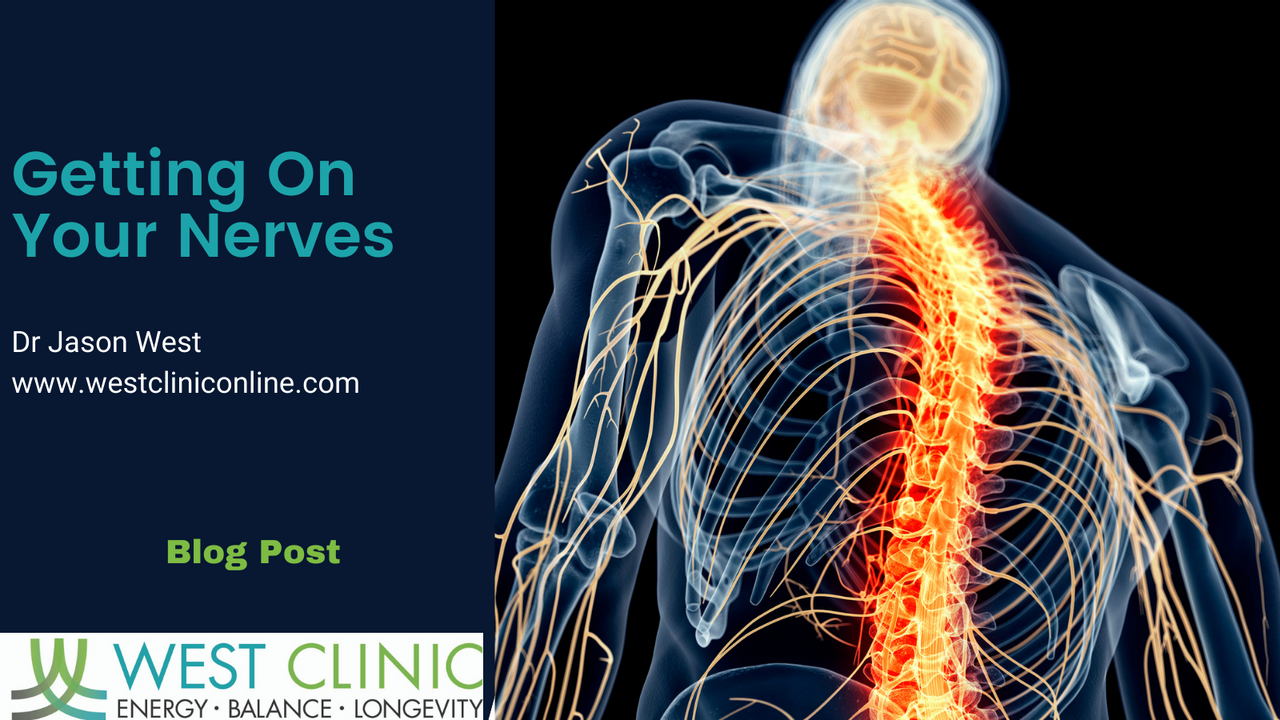Getting On Your Nerves

Anxiety is a state where too many impulses cross the synapse and nearly every stimuli “gets through” and short circuits the brain.
Anxiety is a general term for several disorders that cause nervousness, fear, apprehension, and worrying. These disorders affect how we feel and behave, and they can manifest real physical symptoms. Mild anxiety is vague and unsettling, while severe anxiety can be extremely debilitating, having a serious impact on daily life.
This condition is generally associated with sleep deprivation, insomnia, sleep interruption with the inability to go back to sleep. The patient complains of panic attacks, mind storms and a prodromal feeling of impending disaster. Stress may be a factor.
The medical prescriptions such as Ativan, Ambien, Klonpin, Xanax act in the GABA pathway to increase the resistance across the synapse. Whereas there may be temporary amelioration there is no long term correction and many have significant side-effects.
Antidepressants are now being marketed for “lifestyle” indications. Prozac, Paxil and Zoloft are indicated for panic disorder, post-traumatic stress disorder, and social anxiety disorder. Zoloft also is approved for premenstrual dysphoric disorder, while Paxil also is approved for generalized anxiety disorder. Doctors, for their part, prescribe SSRIs for a wide range of conditions, such as headaches, substance abuse, eating disorders, back pain, impulsivity, upset stomach, irritability, hair pulling, nail biting, premature ejaculation, sexual addictions, and attention deficit disorder. One growing market for SSRIs is their use with children, even though some studies have found that antidepressants are no more effective than placebos in these patients.
Natural Alternatives for Anxiety
There are ways to calm anxiety naturally:
1. Balance body chemistry: carefully evaluate the nutritional, bio-chemistry and medical microscopy findings and balance accordingly.
▪️When the body is balanced, harmony and health occur
2. Services recommended for anxiety.
▪️Blood tests
▪️Medical microscopy
▪️Energy evaluation
▪️Nutritional consultation
3. Medical nutritional therapy
▪️Nutritional medicine
▪️B Vitamin
▪️Essential Fatty Acids
4. Energy Medicine—GABA Isode— increases resistance across the synapse .
▪️This is more or less like acupuncture without needle therapy.
▪️ In moderate to severe cases I would recommend intravenous therapy (Myers Cocktail)
I feel I need to give a little more explanation of ElectroMedTM.
Through 12 years of clinical experience, I have never found anything that works as well as ElectroMedTM. This product was personally formulated by my late father. It has a stabilizing effect on emotions, hyper-irritability, cyclic mood disorders and attention deficit disorder.
ElectroMedTM has helped a lot of kids avoid the ADD label and dangerous prescription drugs—and has even helped with road rage and has saved a lot of marriages.
It is targeted to meet the nutritional needs of the nervous system of the patient which may result in improved mood, memory, sleep, alertness and the reduction of stress. It helps to stabilize the electrochemical events associated with neural transmission.
Some of the key ingredients of ElectroMedTM are:
- Calcium citrate—helps release neurotransmitters
- Folic acid
- B12
- Magnesium—along with calcium acts as a natural tranquilizer with loopy or dopy side-effects
- Zinc aspartate—energy production
- Molybdemum—essential mineral for the brain
- L- Arginine—releases nitrous oxide and growth hormone
- Herbs—alfalfa, gycyrrhza, valerian root, passion flower, and hypericum peforatum
In my experience this produces very effective clinical outcomes. If you or a loved one is experiencing anxiety, please talk to me or my office staff today.
A Tidbit About Vitamin C
We need to make a distinction between ascorbic acid (generally called vitamin C) and mineral ascorbates, (vitamin C bound to a mineral such as calcium, sodium, potassium, or magnesium). Mineral ascorbates is the form utilized by the human body. The intravenous vitamin C used in the clinic is always in ascorbate form—perhaps that could explain why a difference in efficacy can be seen between that and the oral vitamin C.
Vitamin C has an extremely short half life in the body—around 30 minutes—so a constant supply, either by intravenous drip or by multiple doses during the whole day, is important to obtain the full beneficial effect.



